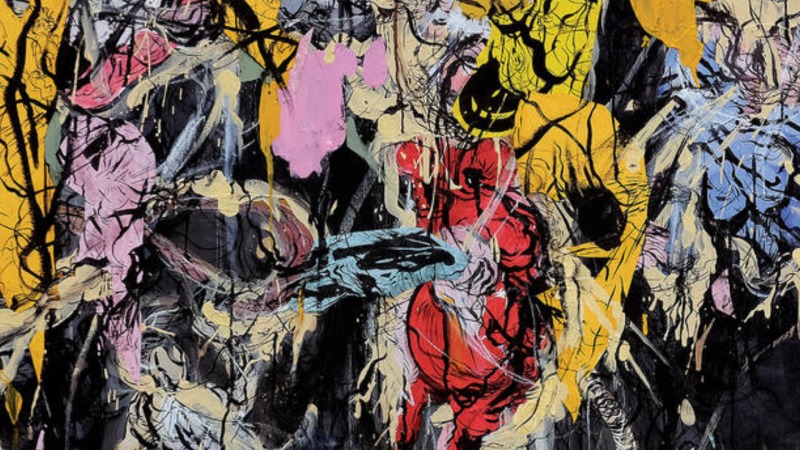The Film Pairs Moor Mother’s Lyrical Fortitude with SUMAC’s Omnipotent Malevolence
SUMAC and Moor Mother take the past and present to task while outlining a future beyond the current confines. For the most part, the two make music that’s beyond the sum of its parts.

The Film is a meeting of the minds. Both SUMAC and Moor Mother are experts at wielding their skills for music that’s both brilliant and nauseating. For SUMAC, metal is a destructible aesthetic temple whose parts can be re-sculpted to take any form, so long as the end result is the right blend of disorienting, harsh, and beautiful. Last year’s The Healer saw the trio of post-metal heroes extend their dismal exercises to the brink of woeful drudgery, giving way to rebirth. It was also a big year for Camae Ayewa, better known as Moor Mother: The Great Bailout proved a masterful meditation on Britain’s repeated prostrations to its propertied planter class with a rich tapestry of collaborators. Arguably, The Great Bailout is one of Moor Mother’s darkest releases, and while it inhabits her frequent avant-garde free jazz space, the album feels as oppressive and noisy as a metal release. Now, with The Film, SUMAC’s free doom frames Ayewa’s poetic diatribes, and together, they make for a harrowing listen.
“I want my breath back.” The first time we hear Ayewa’s voice sans manipulation on opener “Scene 1” is a particular knockout. SUMAC’s guitars settle after an opening roar, but they’ll poke at the momentary peace with a sharpness that Moor Mother mirrors with repeated, accelerated incantations: “They don’t believe.” She asks: “Does America love you? Does Germany love you? Does Australia love you? Does England love you?” As the guitars undulate, Ayewa pokes holes in illusions, reckoning with executions, lies, and the daily expressions of violence that keep racial capitalism churning. “Scene 2: The Run” is, itself, a small suite. SUMAC opens with thundering strums while synths flutter, attempting to pick up a signal, leading to a cacophony that’s over as soon as it peaks. SUMAC reenters with a more traditional yet menacing doom performance, setting a furious stage for Moor Mother to race through a dizzying meditation on return. Between repeated utterances of “I was running,” she elaborates where she goes—to the sky, back to herself—with doubt. There’s no stability, and it only gets scarier when Aaron Turner ascends to vocal leadership, growling through his own oratory.
-

-

-

-

-

-

-

-

-

-

-

-

-

-

-

-

-

-

-

-

-

-

-

-

-

-

-

-

-

-

-

-

-

-

-

-

-

-

-

-








































